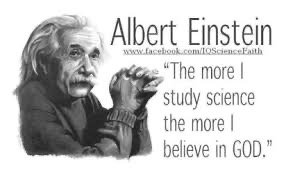🕊️ The Existence of God: Insights from Christian Theologians
The question of God’s existence has captivated philosophers and theologians for millennia. While the Bible begins with the assumption that God exists (“In the beginning, God…” – Genesis 1:1), Christian thinkers across the ages have wrestled with how to reasonably defend that assumption in the face of doubt, skepticism, and competing worldviews. Below is a survey of key perspectives, from Augustine and Aquinas to Plantinga and Keller, examining their contributions to the philosophical understanding of God’s existence.
🏛️ 1. St. Augustine (354–430 AD) – God as Supreme Being and Source of Truth
Key Idea: The human heart is restless until it finds rest in God.
- Philosophical Approach: Augustine used a mix of Neoplatonism and Christian thought, asserting that all humans have an innate longing for eternal truth and beauty—things only found in God.
- Argument for God: The existence of truth, beauty, and moral law suggests the existence of a perfect, unchanging source—God.
- Quote: “You have made us for yourself, O Lord, and our heart is restless until it rests in you.”
Contribution: Augustine set the foundation for a subjective but reasoned belief in God—our inner moral compass and spiritual longing point beyond ourselves.
🧠 2. St. Thomas Aquinas (1225–1274) – Five Ways to Prove God’s Existence
Key Idea: Reason and faith are complementary, not contradictory.
- Philosophical Approach: Aquinas blended Aristotelian logic with Christian theology.
- Famous Arguments:
- The Unmoved Mover – Something had to set all motion into action.
- The First Cause – Everything has a cause; there must be an uncaused cause (God).
- The Necessary Being – All things are contingent; only God is necessary.
- The Argument from Degree – There must be an ultimate standard of goodness.
- The Teleological Argument – The order in nature points to an intelligent designer.
Contribution: Aquinas showed that rational proofs for God’s existence are not just possible but necessary for understanding faith intellectually.
📜 3. Anselm of Canterbury (1033–1109) – The Ontological Argument
Key Idea: God is “that than which nothing greater can be conceived.”
- Philosophical Approach: Anselm’s ontological argument is more abstract and logical.
- Argument Summary: If we can conceive of a perfect being in our minds, that being must exist not just in the mind but in reality—because existence in reality is greater than in the mind alone.
Criticism and Influence: Though later criticized (notably by Kant), Anselm’s reasoning continues to be reinterpreted and defended by modern thinkers like Alvin Plantinga.
🌍 4. Blaise Pascal (1623–1662) – The Wager
Key Idea: Reason alone can’t prove God, but the wise person chooses to believe.
- Philosophical Approach: Pascal focused on the limitations of reason and the value of faith.
- Wager Argument: If God exists and you believe, you gain everything. If God doesn’t exist and you still believe, you lose nothing. But not believing risks infinite loss.
Contribution: While not a strict proof, Pascal offered a pragmatic argument that belief in God is the rational choice when stakes are considered.
🛡️ 5. Alvin Plantinga (1932–2023) – Belief in God as Properly Basic
Key Idea: Belief in God doesn’t need proof to be rational.
- Philosophical Approach: Reformed Epistemology
- Argument Summary: Just like our belief in other minds or the external world, belief in God is “properly basic”—it’s foundational, not derived.
- Free Will Defense: Plantinga also argued that evil doesn’t disprove God, because free will logically allows for moral failure without implicating God’s character.
Contribution: Plantinga shifted the conversation from proving God to defending belief in God as rational and warranted.
🌌 6. William Lane Craig (1949– ) – The Modern Cosmological Defense
Key Idea: The universe had a beginning, so it must have a cause—God.
- Philosophical Approach: Kalam Cosmological Argument (from Islamic and Christian tradition)
- Kalam Argument:
- Everything that begins to exist has a cause.
- The universe began to exist.
- Therefore, the universe has a cause.
- Further Arguments: Craig also uses the fine-tuning of the universe and moral objectivity as evidence of a Creator.
Contribution: Craig brought classical arguments back into the mainstream using modern science and cosmology to reinforce theological reasoning.
📖 7. C.S. Lewis (1898–1963) – The Argument from Morality
Key Idea: The universal sense of right and wrong points to a moral Lawgiver.
- Philosophical Approach: Apologetic and intuitive
- Argument Summary: If there is no God, there can be no objective morality. Yet we all appeal to right and wrong. Therefore, there must be a source beyond culture—God.
Quote: “If the whole universe has no meaning, we should never have found out that it has no meaning.”
Contribution: Lewis made theology personal and accessible, showing how the human conscience is a witness to God’s reality.
✝️ 8. R.C. Sproul (1939–2017) – Classical Theism Reasserted
Key Idea: Atheism is intellectually inconsistent; God is the only rational explanation for existence.
- Philosophical Approach: Classical apologetics
- Main Arguments: Sproul emphasized the necessity of a self-existent, eternal being to account for the contingent universe.
Contribution: Sproul brought Reformed theology and classical apologetics together, pressing that the denial of God leads to absurdity.
🧩 9. Tim Keller (1950–2023) – Faith in a Skeptical Age
Key Idea: We all live by faith—secular or religious.
- Philosophical Approach: Cultural apologetics blended with pastoral reasoning.
- Argument Summary: Even secularism assumes values (like justice and dignity) that only make sense in a theistic worldview.
- Quote: “To say that values like freedom, love, and justice matter requires a belief system deeper than secular reason can provide.”
Contribution: Keller showed that faith in God is not irrational—but deeply necessary to sustain the things modern society values most.
🧠 10. John Lennox (1943– ) – Science and God Are Not Enemies
Key Idea: Science points to a mind behind the universe.
- Philosophical Approach: Scientific-theistic integration
- Core Message: Far from disproving God, scientific discoveries (like fine-tuning, information in DNA, the beginning of the universe) point to an intelligent Creator.
Quote: “Nonsense remains nonsense, even when spoken by famous scientists.”
Contribution: Lennox equips believers to see that science and faith are allies, not enemies, in the search for truth.
🔍 Common Threads in Theological Arguments for God’s Existence
Despite differing methods and historical contexts, several themes unite these theological thinkers:
- Reason Supports Faith – God’s existence is not irrational; it is either demonstrable or at least reasonable.
- Human Longing as Evidence – Our internal moral, spiritual, and emotional needs point to something greater.
- Cosmic Order and Origin – The beginning and fine-tuning of the universe suggest an intelligent cause.
- Objective Morality – The universal sense of right and wrong implies a moral Lawgiver.
- Faith Is Universal – All worldviews require faith; Christian belief simply admits it and grounds it in revelation.
🪧 Conclusion: Why These Arguments Still Matter
While arguments for God’s existence don’t force belief, they demonstrate that faith is not blind. As theologians have shown across the centuries, belief in God is both reasonable and necessary to explain the deepest realities of life—meaning, morality, existence, and love.
As C.S. Lewis once put it:
“I believe in Christianity as I believe that the sun has risen—not only because I see it, but because by it I see everything else.”
This line beautifully sums up the heart of the philosophical defense of God’s existence: not simply as an idea to be proven, but as the light by which all of life makes sense.

📝 Published by Mountain Veteran Ministries
💬 Leave a comment below or share this blog if it stirred your heart.
📧 Subscribe to our newsletter for more gospel-rooted insights.

